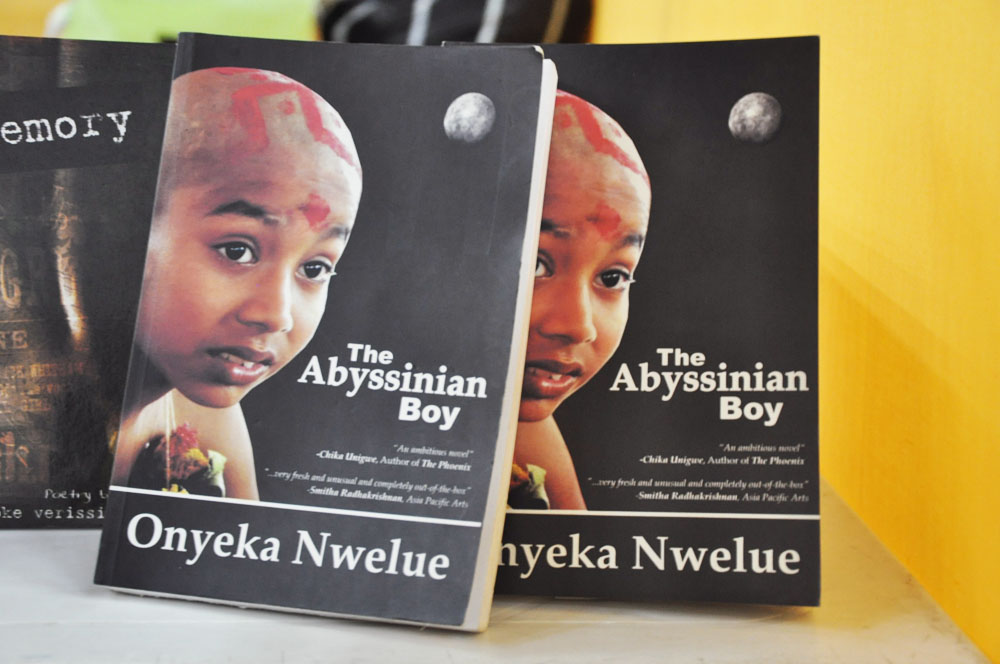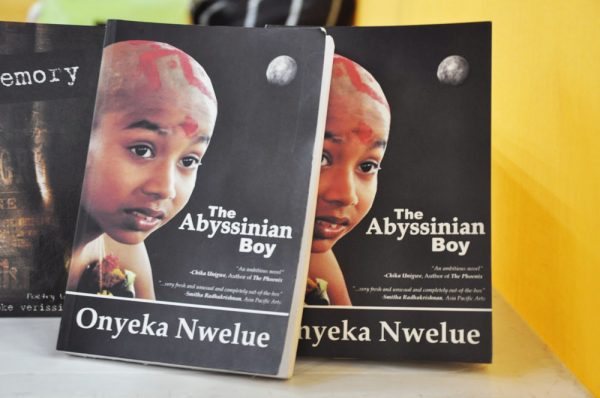Onyeka Nwelue’s The Abyssinian Boy is a story with many sides and lessons. Set in Dawali, India, the author took depth mixed with uncommon fictive narrative to create a world, the propensity of which is reminiscent of pure realism. It’s remarkable narrative pulls the reader on a straight lane as he sees through the life of an Indian Journalist, Rajaswamy Rajasgopalan, married to a Nigerian, Eunice Onwubiko.
The good times of their lives unveil family happiness, abundant love, cerebral interactions and the bond of family ties that stretches through a culture that elevates collective habitation more than anything else. At the fulcrum of the life of the Rajasgopalan lies the vivid cultural heritage of the Hindus, one mixed with the devious objective of racism. The author’s careful exploration of the tradition, religion, culture and beliefs of the people places the novel on historical discovery, social works and archaeological testament.
The tragedy that hits the Rajasgopalan family in this book takes this simple tale right down the heart of the reader as one struggles with the pains of the innocent. It’s touching to feel how supernatural forces rear their ambitions on the affairs of men, and lay untold turmoil on the hearts of the living with unspeakable horrors.
The story was told in two parts. The first, presents Rajaswamy in India, his wife Eunice, their son David and his extended family.
The second part of the story, set in Nigeria, saw Rajaswamy trying to understand the complexity of the Lagos Metropolis. In Imo State, Mama-Nkeukwu displayed religious bigotry “for Christ sake” and this leaves Rajaswamy in confusion. Her illiteracy had since become a nightmare and this made the story unforgivably funny.
The stint of magical realism in the author’s craft released the story into the metaphysical realism, trailing David’s journey with Nfanfa into the grave. This introduces the reader into the ancient African belief of the existence of spirit children who roam restlessly within the physical and spiritual world collecting miseries to strain the living with more questions than answers – the very subject that has held many African writers to endless narrative.
The author intelligently presents the subject of magical realism in ways that leaves the believability of the concept to the reader’s sensibility.
Onyeka Nwelue’s capacity for resplendent narrative is commendable and his eye for details counts for him as a distinguished writer emerging from the continent of Africa.
The book is a moving story and the diction is aptly deployed except for minor grammatical errors e.g “extreme end” and the use of certain expressions in Igbo language -many interpreted in English language and others uninterpreted thereby hindering wider acceptance and understanding. This is however very minimal, as the book still holds a flying prospect – one that will earn the author gold in the nearest future.
About the Writer: Evans Ufeli is a Lagos based Lawyer and writer. He is the author of the a claimed Novel “Without Face”. He lives in Victoria Island Lagos, Nigeria. You can contact him via Facebook: Evans Ufeli, Email: [email protected], Twitter: @Evansufeli and Phone: 08037712353. He blogs at www.ethicsafrica4u.wordpress.com.


